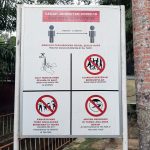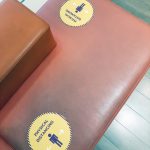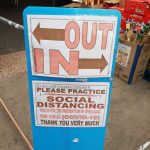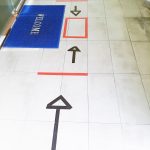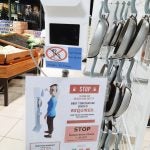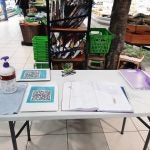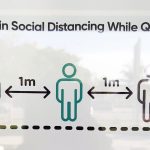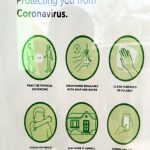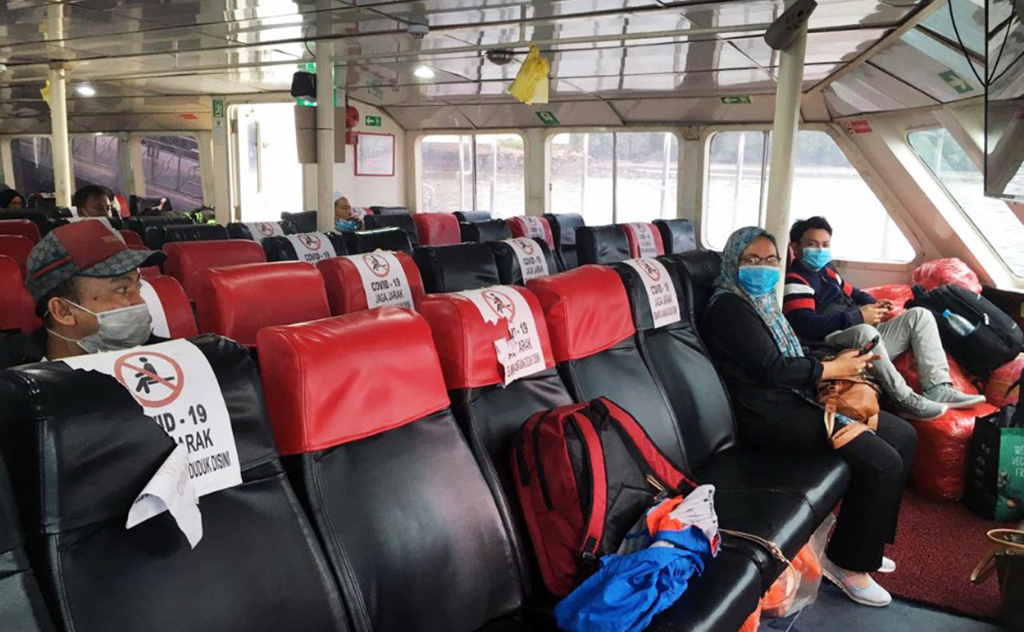Living with Covid-19 in Brunei Darussalam: A research update
https://doi.org/10.25542/chq1-m0fa
As of 4 May 2021, Brunei Darussalam (henceforth Brunei) has recorded 3 deaths and 227 confirmed cases of Covid-19. With its controlled numbers, Brunei—which is the only absolute monarchy in Southeast Asia—maintains a unique leadership in the fight against Covid-19. Its no-nonsense approach to an early border closure has been effective in sustaining zero community transmission since May 2020, after two months of the arrival of its first coronavirus case.
The Brunei Government implemented a prohibition on its citizens and residents from exiting the country, which was followed by a ban on the entry of foreign nationals in March 2020. From immediate school closures, work-from-home directives and stringent border closures, Brunei took decisive action in proactively safeguarding the safety of its people against the coronavirus.
In this period of a new normal, Brunei is in its first phase of a national Covid-19 vaccine rollout with high optimism to inoculate at least 70 per cent of its population. While social distancing measures are advised, there has been substantial flexibility in terms of domestic movement and gatherings within the nation as part of its de-escalation plans. Residents are monitored via the government’s BruHealth application, which enables self-reporting to track changes in health status and contact tracing through scanning of QR codes upon entry into public places.
As part of ARI-NUS’s research project Crisis, Community and Control: Living with Covid-19 in Southeast Asia, my team and I conducted one-to-one oral interviews with ten participants for insights into the experiences of those living in Brunei. The objective of this research endeavour was to document responses to Covid-19 restrictions in Brunei, a nation located on northwestern Borneo Island with a population of 453,600 situated on 5765 square kilometres of land.
Interview Subjects and Medium
Ten interview participants were selected across four groups: those once infected with SARS-CoV-2 virus, frontline workers, ethnic minorities and the elderly. They comprise a combination of men and women who are both nationals and non-nationals of Brunei. These oral interviews ran during a two-week span from the end of January to early February 2021. Nine out of ten interviews were conducted in person, while one participant opted for the zoom virtual platform.
The physical medium of interviews encouraged spontaneous exchanges, while also heightening audio-visual cues without any technological barriers. This enabled interviewers to put participants at ease for them to share significant changes in their lives over the past year as they coped with the pandemic. In contrast, the solo interview conducted online elicited terse responses and showed signs of either miscommunication or discomfort during the interview.
Preliminary Insights
Participants were fast to comment on the unique citizenship and social harmony that are enjoyed in Brunei. As its name suggests, Brunei is an ‘Abode of Peace’ (Darussalam) where social cohesion is a defining characteristic of the larger unity that can be found within the nation. Irrespective of their nationality, race and religion, participants remarked on the cooperative role of the people (“cooperative with the government”; “[t]he people of Brunei’s response were good”) in adhering to the Ministry of Health’s regulations for the prevention of COVID-19. With the coronavirus causing medical, financial and educational crises in other parts of the world, the participants also expressed relief that a semblance of normality can be enjoyed in Brunei. After successfully containing its first wave, Brunei continues to stay vigilant through a cooperative citizenship and the government’s coordinated approach. In interviews, the ‘[v]ery effective, very efficient’ government has been extolled because ‘they can control the pandemic in Brunei’.
Through views about the government’s efficiency, participants paid indirect tribute to the Sultan (Malay king), who is dubbed as the ‘caring monarch’, for his provision for his ‘rakyat’ (citizens) in the unfolding pandemic. Furthermore, a few participants shared their stories of gratitude in receiving medical treatment at the National Isolation Centre, which has an extended wing paid for through the ‘Covid-19 Relief fund’. This extension has doubled hospital capacity in three weeks. A new virology facility was also approved by the monarch and built in only two weeks.
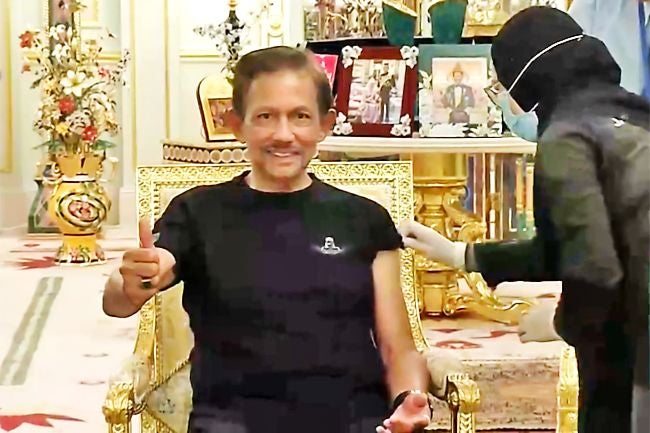
In the midst of this success, the participants revealed intense yearnings for home that have been caused by prolonged travel restrictions. Most significantly, immigrant workers aired their grievances about not being able to return to their families, having to cancel their end-of-contract passage, and the stress of learning about worsening developments of the Covid-19 situation elsewhere while remaining separated from their loved ones back home.
Brunei nationals similarly spoke of intimate connections between the family and home, underscoring familial support that they received while volunteering in the COVID-19 national relief effort.
A renewed sense of the importance of personal health also suggests a realigned outlook on life priorities. While practising social distancing and self-isolation in line with the World Health Organisation’s guidelines, participants extolled Brunei’s state-wide measures to heed international advice on pandemic responses. In this way, they were cognisant of public reminders of personal hygiene and collective accountability reverberating in the state. Consequently, their reflection on life’s purpose beyond their everyday work is catalysed by the crises of COVID-19. As a participant explains, “Everyone in the world has reprioritised, redefined what’s important to [themselves]”. Health matters related to the pandemic have thus become an inadvertent channel to ponder on life’s larger meaning, which is increasingly associated with values and family.
On another note, a subset of participants who were once positive for the SARS-CoV-2 virus seem to display symptoms of trauma. A failure to articulate their experiences of isolation and medical treatment suggests belated effects of the traumatic moment they discovered that their swab tests were positive. Monosyllabic responses and singular statements that did not offer any elaboration were highly profound in one interview transcript. Other ambiguous statements, such as “Not really sure what to answer”, are suggestive of either a lack of engagement with the interviewer or a coping strategy of distancing in the (re)telling process related to a specific Covid-19 experience that marks their attempt at personal detachment from a traumatic event(s).
Research Challenges
With regard to interviewing ethnic minorities in the low socio-economic group, one research challenge was the difficulty in understanding the conversational Indonesian Malay spoken by domestic helpers. There was also the additional challenge of transcribing these into Standard Malay and, finally, translating into English. These linguistic discrepancies made it tricky to ensure that their utterances were fully comprehended and their spoken messages not distorted nor misinterpreted.
Domestic helpers are also conventionally treated as silent workers in their employer’s houses; they are very rarely expected to give their point of view on most topics. In Southeast Asia, their domestic labour is primarily accompanied by their quiet subservience to norms of their employer’s household. However, vocal expression and personal engagement were invited in the interviews. This opened up an unfamiliar territory that reproduced a lack of readiness to share a great deal about their experiences of the crisis, control and community in and beyond Brunei.
Lessons Learnt
In a nation that has by most measures done extraordinarily well, numerous impacts of Covid-19 can still be seen. For one, this interview sample provides a contemporary snapshot of the ongoing predicament of previous patients who contracted the coronavirus. For another, this research data exposes the personal toll of separations from loved ones due to border closures since March 2020. Lastly, the intricate associations between family and home forged in this time of a health and social pandemic suggest a poignant realignment of personal priorities in life.
As the rest of the world battles with the pandemic, Covid-19 has presented opportunities in Brunei for residents to mindfully breathe and step forward to reflect on the things that, or indeed people who, are most important to them. Even as their concern grows for other nations whose coronavirus numbers are on the rise, the participants of this interview set reveal a sense of physical security that has been established by the government’s efficient control of the crisis.
Every effort has been made to trace the copyright holders and obtain permission to reproduce this material. Please do get in touch with any enquiries or any information relating to this image or the rights holder.
The views expressed in this forum are those of the individual authors and do not represent the views of the Asia Research Institute, National University of Singapore, or the institutions to which the authors are attached.
Most significantly, immigrant workers aired their grievances about not being able to return to their families, having to cancel their end-of-contract passage, and the stress of learning about worsening developments of the Covid-19 situation elsewhere while remaining separated from their loved ones back home.






